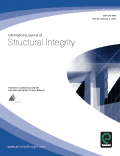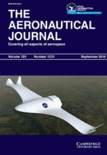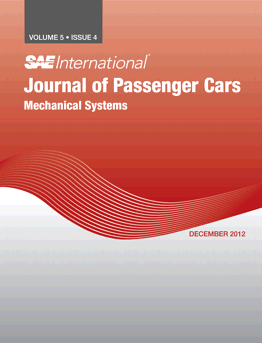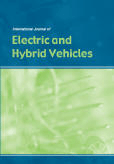
SAE International Journal of Passenger Vehicle Systems
Scope & Guideline
Transforming Ideas into Automotive Solutions
Introduction
Aims and Scopes
- Vehicle Dynamics and Control Systems:
Research that explores the dynamics of vehicles, including control strategies and systems for improving handling, stability, and overall performance. - Safety and Crashworthiness:
Studies focusing on enhancing vehicle safety features, crashworthiness, and accident avoidance technologies, including advanced driver assistance systems. - Thermal Management Systems:
Investigations into the thermal management of automotive systems, particularly in electric vehicles and hybrid vehicles, to optimize performance and efficiency. - Materials and Structural Analysis:
Research on the use of new materials and structural designs to improve vehicle durability, performance, and weight efficiency. - Aerodynamics and Noise Reduction:
Studies that address aerodynamic design and its impact on vehicle performance, including noise reduction strategies in vehicle design. - Machine Learning and Computational Modeling:
Application of advanced computational techniques, including machine learning, for prediction, optimization, and simulation of vehicle systems.
Trending and Emerging
- Autonomous Vehicle Technologies:
Research into enhancing the safety and operational efficiency of autonomous vehicles, especially in challenging conditions, is growing, highlighting the importance of adaptive technologies in modern vehicle design. - Integration of Artificial Intelligence:
The application of artificial intelligence, particularly machine learning, in vehicle systems for real-time optimization and decision-making is increasingly prevalent, indicating a trend towards smarter automotive solutions. - Sustainable and Electric Vehicle Technologies:
A significant increase in research related to thermal management and performance optimization of electric and hybrid vehicles, reflecting the automotive industry's shift towards sustainable technologies. - Advanced Materials and Manufacturing Techniques:
Emerging studies on innovative materials and manufacturing processes that enhance vehicle performance and safety, including topological optimization and non-pneumatic tire systems. - Complex System Modeling and Simulation:
There is a trend towards utilizing advanced modeling techniques to simulate and analyze complex automotive systems, improving design and performance evaluation processes.
Declining or Waning
- Traditional Mechanical Systems:
Research focused exclusively on traditional mechanical systems and components without integration of modern technologies is becoming less prominent, as the field shifts towards more advanced, integrated solutions. - Conventional Fuel Engines:
Studies centered on conventional fuel engine technologies are decreasing in favor of research into alternative powertrains, such as electric and hybrid systems, reflecting the industry's transition towards sustainability. - Basic Aerodynamic Studies:
While aerodynamic efficiency remains important, basic studies without innovative applications or advanced computational techniques are less frequently published, as the focus shifts to more complex and practical aerodynamic challenges.
Similar Journals

JOURNAL OF THE AMERICAN HELICOPTER SOCIETY
Leading the Way in Aerospace Engineering Excellence.The Journal of the American Helicopter Society, published by the American Helicopter Society Inc., serves as a leading platform for innovative research in aerospace engineering, mechanical engineering, and materials science. With its ISSN 0002-8711 and E-ISSN 2161-6027, this esteemed journal has been disseminating pivotal findings since 1969 and continues to capture cutting-edge advancements in the field. The journal is distinguished by its position in the top quartile (Q1) for Aerospace Engineering and Mechanics of Materials, and Q2 for Materials Science (miscellaneous), reflecting its rigorous standards and significant influence on both academia and industry. Researchers, professionals, and students benefit from access to comprehensive studies, case analyses, and reviews, all aimed at enhancing knowledge and fostering innovation in rotary-wing aircraft technologies. As the field continues to evolve through new challenges and innovations, the Journal of the American Helicopter Society remains a vital resource for those committed to advancing helicopter design, operation, and safety.

INTERNATIONAL JOURNAL OF CRASHWORTHINESS
Advancing Safety Through Innovative ResearchThe INTERNATIONAL JOURNAL OF CRASHWORTHINESS, published by Taylor & Francis Ltd, is a prestigious journal established in 1996 that focuses on the critical field of crashworthiness engineering across several domains, including industrial, manufacturing, mechanical engineering, and transportation. With an impressive Q2 ranking in both Industrial and Manufacturing Engineering and Mechanical Engineering, as well as a Q3 ranking in Transportation, this journal serves as a vital platform for disseminating innovative research and cutting-edge developments. Although currently not an open-access publication, it provides invaluable insights for researchers, professionals, and students seeking to enhance safety and structural performance in crash-related scenarios. With the ISSN 1358-8265 and E-ISSN 1754-2111, the journal continues to facilitate important conversations aimed at advancing the field and improving public safety. Stay informed with the latest findings and contribute to this evolving discipline by exploring the INTERNATIONAL JOURNAL OF CRASHWORTHINESS today.

International Journal of Structural Integrity
Connecting Academia and Industry through Structural Integrity ResearchInternational Journal of Structural Integrity is a premier peer-reviewed academic journal published by EMERALD GROUP PUBLISHING LTD in the United Kingdom. As a valuable resource in the fields of Civil and Structural Engineering, Mechanical Engineering, and Mechanics of Materials, this journal serves to advance knowledge and foster innovation in these critical areas of study. With an impressive impact factor reflected in its 2023 category quartiles, ranking Q2 across multiple engineering disciplines, the journal is recognized for its contributions to research and practical application. Researchers can benefit from its rigorous publishing standards that encompass a wide array of interdisciplinary topics pertaining to structural integrity. Accessing the journal is facilitated for those seeking high-quality research and findings, vital to both academia and industry. Since its inception in 2010 and extending until 2024, the journal continues to attract scholarly articles that push the boundaries of engineering knowledge, making it an essential platform for professionals, students, and researchers seeking to stay at the forefront of structural engineering."

International Journal of Turbomachinery Propulsion and Power
Transforming ideas into innovations in propulsion technology.The International Journal of Turbomachinery Propulsion and Power, published by MDPI, is a pivotal scholarly platform devoted to advancing the field of turbomachinery, propulsion technology, and power systems. Since its inception in 2016, this open-access journal has provided an invaluable resource for researchers, professionals, and students within the realms of Aerospace Engineering, Energy Engineering, and Mechanical Engineering. With its current ranking in the Q3 category across these disciplines and its strategic placement in Scopus, the journal facilitates the dissemination of cutting-edge research findings and innovative solutions. The commitment to open access, effective from 2017, ensures that high-quality research is readily accessible, fostering collaboration and knowledge sharing in the global academic community. As it continues to expand its scope through 2024, the journal remains a crucial avenue for discussion, experimentation, and advancement in turbomachinery and energy-related studies.

AERONAUTICAL JOURNAL
Innovating the future of aeronautical research.Aeronautical Journal, published by Cambridge University Press, is a premier scholarly journal dedicated to advancing the field of aerospace engineering. With a notable impact factor, this journal holds a strong position in the academic community, ranked #53 out of 153 in the Scopus category of Aerospace Engineering, placing it in the 65th percentile. The journal has been providing a platform for groundbreaking research since its inception in 1969, and continues to be a vital resource for researchers, professionals, and students involved in aeronautics. As a Q2 journal in the 2023 Aerospace Engineering category, it offers high-quality articles that cover a range of topics within the discipline, contributing to the ongoing discourse and innovation in aerospace technologies. Although not an open-access journal, it remains accessible to a vast readership through institutional subscriptions and partnerships. The Aeronautical Journal is a crucial publication for those seeking to stay at the forefront of aerospace research and development.

Aerospace
Shaping the Future of Flight Through Open AccessAerospace is a premier open-access journal published by MDPI, established in 2014 and dedicated to the dynamic field of aerospace engineering. With an impressive Q2 ranking in the 2023 category of Aerospace Engineering, this journal is a vital resource for researchers, professionals, and students interested in advancements and innovations in aerodynamics, avionics, propulsion, and more. Operating from Switzerland, Aerospace provides a platform for the dissemination of high-quality research articles and reviews, contributing to the ongoing dialogue in the aerospace community. This journal not only enhances visibility through its open access model but also ensures that critical knowledge is freely available, fostering collaborative efforts and inspiring the next generation of aerospace engineers. With a Scopus ranking of #60 out of 153 in the Aerospace Engineering category, it plays a significant role in shaping the future of aviation and space exploration.

SAE International Journal of Passenger Cars-Mechanical Systems
Innovating for Enhanced Performance and Safety in CarsSAE International Journal of Passenger Cars-Mechanical Systems, published by SAE International, serves as a vital platform for researchers, engineers, and industry professionals focused on the dynamics of passenger vehicle mechanical systems. With an ISSN of 1946-3995 and E-ISSN of 1946-4002, this journal bridges academic research with practical applications in the automotive field. Although coverage in Scopus was discontinued after 2021, the journal has still contributed significantly to the realms of automotive engineering, safety, and mechanical engineering, evidenced by its Scopus rankings and percentiles across various categories, including a rank of #57 in Automotive Engineering. This multidisciplinary journal is key for those looking to advance their knowledge and explore innovative solutions in automotive mechanics, with an emphasis on enhancing vehicle performance, reliability, and safety. While current open access options are detailed further on their website, the journal continues to maintain a commitment to disseminating valuable insights that can shape future automotive technologies and practices.

SAE International Journal of Commercial Vehicles
Fueling Progress in the Commercial Vehicle SectorSAE International Journal of Commercial Vehicles, published by SAE International, stands at the forefront of automotive engineering research, fostering innovation and development in the commercial vehicle sector. With an ISSN of 1946-391X and an E-ISSN of 1946-3928, the journal plays a critical role in disseminating high-quality research, theoretical advancements, and practical applications across various facets of commercial vehicles. As part of the notable SAE publication portfolio, it enjoys a respectable 2023 Q3 ranking within the automotive engineering category and holds a significant position at Rank #72/125 in Scopus, reflecting its growing impact and relevance. The journal's themes encompass innovative technologies, safety advancements, and regulatory developments, providing researchers and industry professionals with vital insights essential for tackling contemporary challenges. Though currently not an open-access publication, its contribution to the engineering community is invaluable, paving the way for future studies and collaborative efforts in the automotive field.

International Journal of Electric and Hybrid Vehicles
Transforming Mobility Through Innovative Research and DevelopmentThe International Journal of Electric and Hybrid Vehicles, published by INDERSCIENCE ENTERPRISES LTD, serves as a pivotal platform for scholarly discourse within the automotive engineering and renewable energy sectors. Established in 2007, this journal focuses on advancing research related to electric and hybrid vehicle technologies, encompassing innovations in design, performance, and environmental sustainability. With its rankings reflecting a Q3 status in Automotive Engineering and Fuel Technology, along with a Q4 in Renewable Energy, Sustainability and the Environment, it occupies a significant space within the academic community. Researchers, professionals, and students can benefit from its comprehensive coverage of theoretical and practical applications. Though not open access, its articles contribute valuable insights and advancements that drive the global transition towards greener transportation solutions. As the journal converges towards its 2024 goal, it remains committed to the dissemination of high-quality research that shapes the future of sustainable mobility.

eTransportation
Pioneering the Future of Sustainable MobilityeTransportation is a premier academic journal published by Elsevier, dedicated to advancing the fields of Automotive Engineering, Electrical and Electronic Engineering, Energy Engineering and Power Technology, and Transportation. Since its inception in 2019, the journal has achieved an outstanding reputation, maintaining a prestigious Q1 ranking across multiple categories in the 2023 Scopus rankings, including a remarkable top position in Automotive Engineering. With an impact factor reflecting its influence and rigorous peer-review process, eTransportation serves as a vital platform for researchers, professionals, and students alike, fostering innovation and disseminating vital research findings that shape the future of transportation technologies. Based in the Netherlands, it supports open access options that enhance the visibility and accessibility of research, ensuring scholarly engagement worldwide. As the field evolves, eTransportation is poised to lead discussions and advancements towards more efficient, sustainable, and intelligent transport solutions.